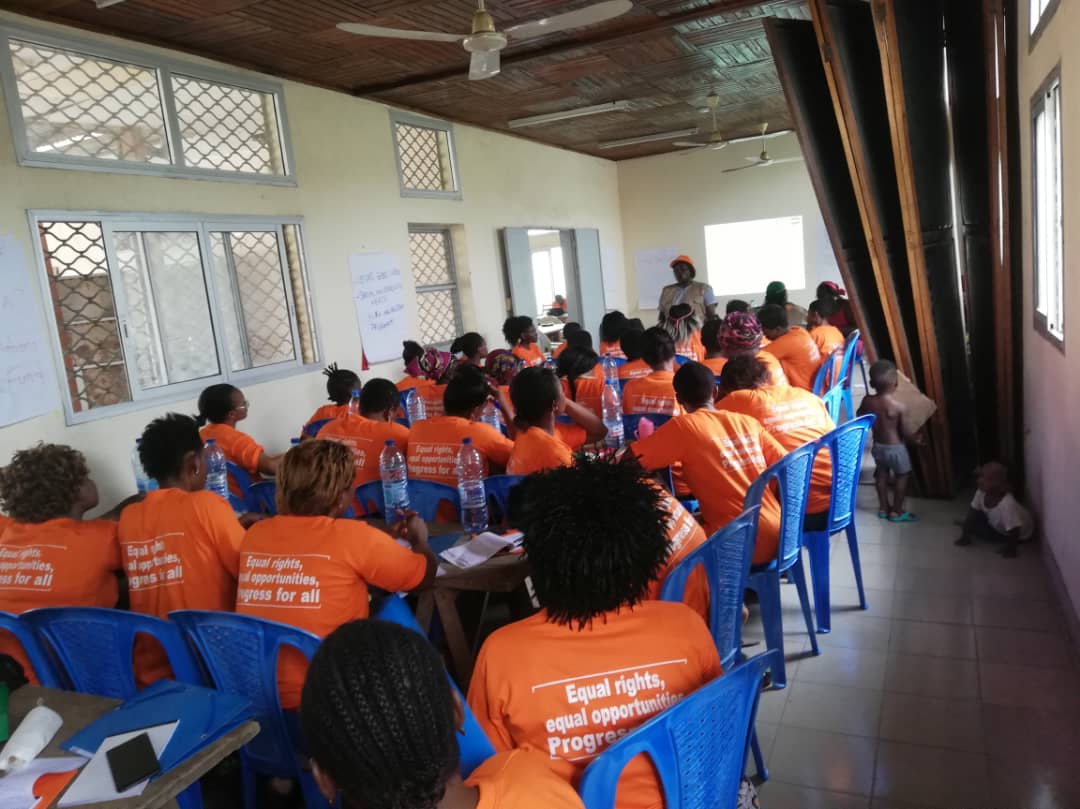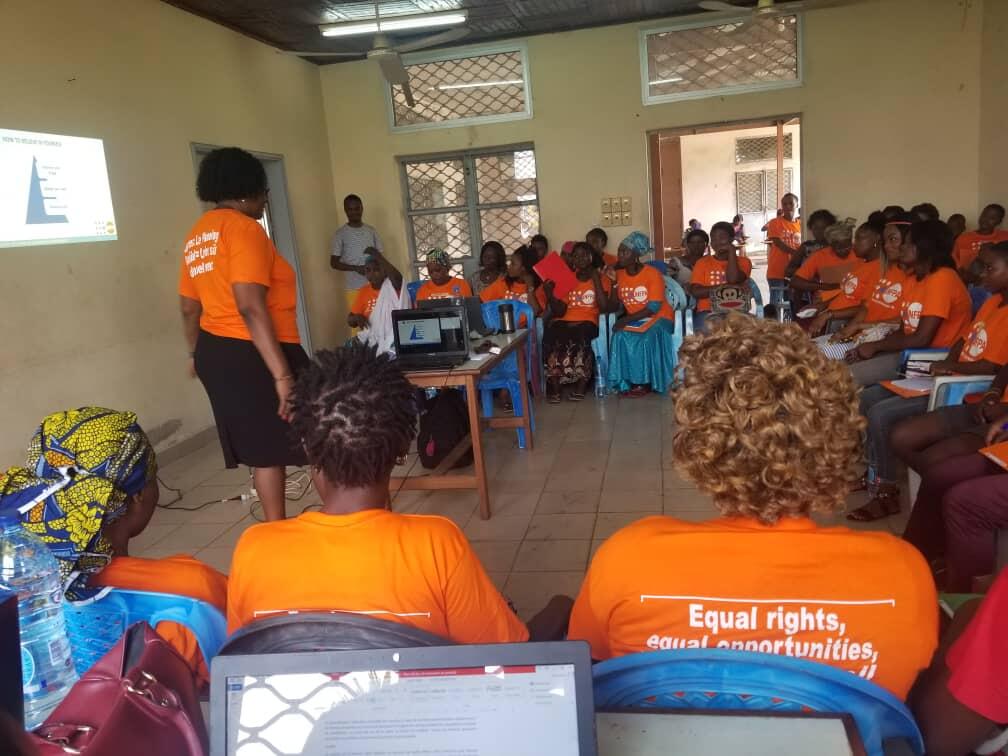Fabiola[1] 29 years old, is among the 100 women and girls who benefited from capacity building activities carried out by UNFPA as measures to building and enhance the resilience of these vulnerable women. They are part of a larger population of Internally Displaced Persons (IDP) who escaped from conflict areas in North West and South West Regions to save their lives and estabish themselves in Douala.
The training, held at the Mabanda Social Centre, was organised by the Ministry of Women Empowerment and the Family (MINPROFF) in collaboration with the United Nations Population Fund (UNFPA). This was part of the activities marking the celebration of the International Women’s Day 2020 in the Littoral Region from the 12th to 13th March 2020.
The UNHCR reported some 76,880 IDPs from the ongoing socio-political crisis that oppose national defense forces to separatist groups in both the North West and South West Regions. A larger proportion of these IDPs seeks
refuge in Douala, the biggest town and the country’s economic powerhouse, located at 300km away from Fabiola’s native Bamenda. « I had to run because of the gunshots. It was not safe. I got here in Bonaberi and had to find a place to live. ». Though, living in a big city, not having access to social assets is not quite secure as well. Most of the IDPs remain vulnerable. Particularly for women and girls, the immediate impact are precarious state of sexual and reproductive health, livelihood and housing. All combined, they live in a constant risk of abuse and other forms of Gender-Based Violence.

Photo/UNFPA Cameroon
Hence, the training, among other topics, gave them basic information on how to better manage their reproductive health, the importance of Family Planning as well as ways to mitigate, recognise and denounce any form of Gender-Based Violence. To ensure their economic recovery, participants were drilled on how to develop entrepreneurship skills, on budgetting, accounting as well as making savings from their small scale businesses.
« It is important for these women and girls to be supported. That is, for them to receive instruments, tools and aptitudes to enable them conveniently run their activities in the society.” Said Mrs. Lafortune Isabelle Makota, the Regional Delegate for MINPROFF.
« This training will be very helpful for me because it will help me to better manage my small canda (cow skin) business and take care of the seven members of my family who joined me last week. At least, I will contribute better in taking care of all that emergency gathering. » Fabiola says. Just like Fabiola, most of these women and girls, aged between 15 and 60 years, run small scale businesses to be able to feed themselves and their dependants.
« I am very happy today and grateful to the organisers for thinking of us. » Continues Fabiola. Besides the training certificates participants received, UNFPA donated them Dignity Kits containing basic hygiene items such as sanitary pad, underwears, soap and more. Through this training, UNFPA keeps supporting the government and communities in protecting people, particlulary women and girls in contexts of violent crisis like the one occuring in the North West and South West of Cameroon. Thus, to ensure that no one is left behind.
[1] Her name has been changed to retain her anonymity.





